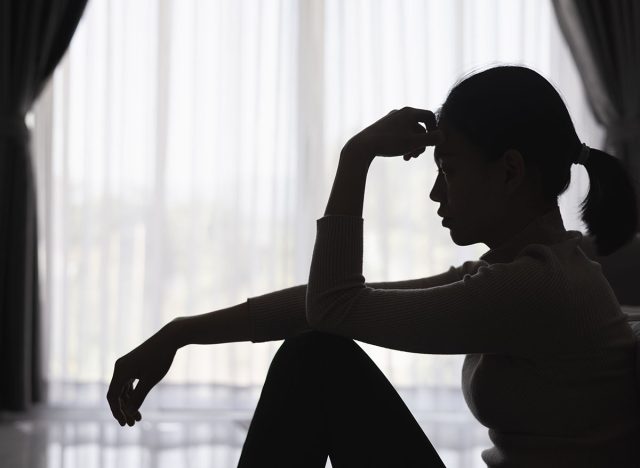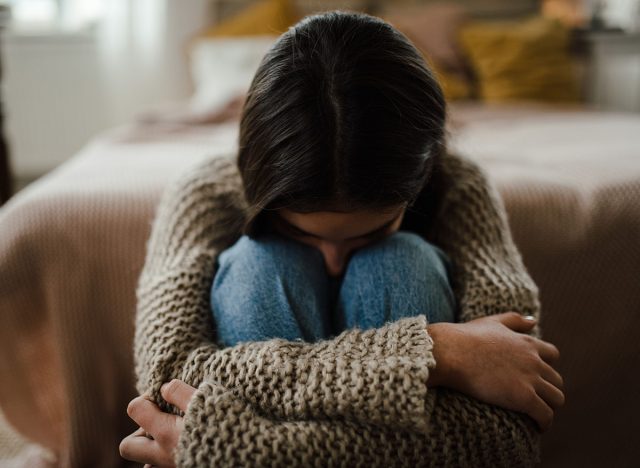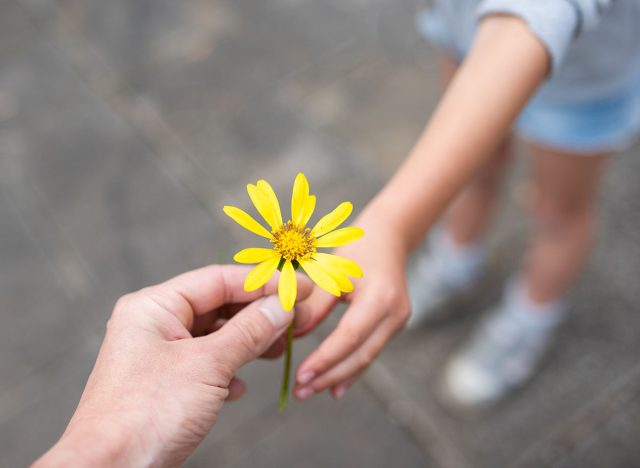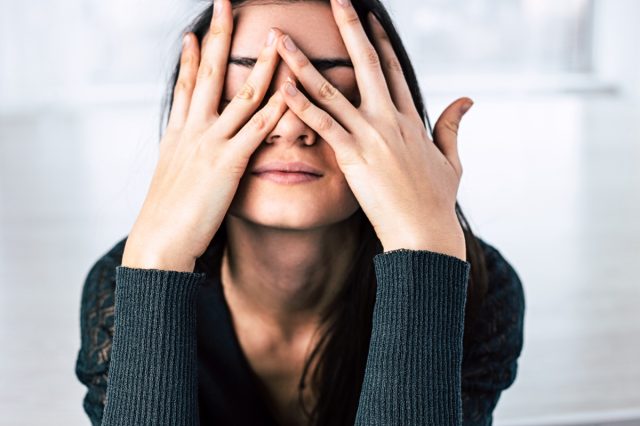6 Surprising Techniques to Reduce Anxiety, Clinical Psychologist Swears By

Sure, meditation, getting enough sleep, eating healthy foods, and taking supplements are known ways of reducing anxiety. However, there are some other more unique methods that can help calm your nerves. Body Network spoke with Brian F. Licuanan, PhD, board-certified clinical psychologist and author of How to Get Your Resisting Loved One Into Treatment, who shares some insight into the five best techniques to reduce anxiety that you might now know about.
1. Stop Future Tripping

First, stop future tripping, Dr Licuanan recommends. "A lot of times, anxiety is fueled by excessive concern about the future or events that may potentially happen. Research has shown that 75% or more of what we worry about never comes to fruition. This means a lot of our anxiety is based on situations or events that actually never happen but that we continue to entertain those distressing thoughts in our minds," he says.
RELATED: 5 Breakfasts I Eat On Repeat to Drop Body Fat Fast
Instead, Seize the Present Moment

One way to stay away from thinking too much about the future is by focusing on the present moment. "Mindfulness techniques (activities to stay present in the moment), such as meditation, diaphragmatic breathing, progressive relaxation, journaling, praying, and other activities that cause you to focus on what is happening in the now are critical tools in combating anxiety," he explains.
2. Stop Focusing on What You Can't Control

Next, stop focusing on what you can't control. "Anxiety can be rooted in struggling in trying to control things that we don't have any power over. Examples of certain aspects of life that we don't have power over are people's opinions of us, how other people are feeling, what's happening in the bigger world, how people are going to behave, etc," says Dr Licuanan.
Instead, Recognize What You Can

Instead, recognize what you can control. "The only thing we have any control over is our attitudes, beliefs, emotions, and actions. When we are able to focus on the things that we have power over, we increase the chances of accomplishing the aimed task and goals, which can increase our level of self-confidence and, as a result, lower our anxiety," he says.
RELATED: This "20-10" Method Is the Simplest Way to Lose Belly Fat and Up to 40 Pounds
3. Stop Catastrophizing

Next, stop catastrophizing and stay optimistic. "One way of coping, but it is considered to be an unhealthy way to do so, is by imagining the worst case scenario or outcome, also known as catastrophizing. When we imagine the worst-case outcomes, this unhealthy mindset provides a protective layer of emotional shielding in case things don't go our way. However, this type of thinking prevents us from likely achieving desired outcomes," says Dr Licuanan,
Instead, Be Optimistic

Instead, stay optimistic. "To combat this way of catastrophic thinking, it's important to stay hopeful and imagine the more ideal and desired outcomes because if we can think of a desired outcome, we increase the chances of it happening. When we achieve intended outcomes, anxiety levels likely decrease," he recommends.
4. Stop Ignoring Your Physical Health

Stop ignoring your physical health, advises Dr Licuanan. "Anxiety can be linked to deficiencies or how we treat our bodies."
RELATED: I'm a Dietitian, and These Are the 12 Exact Steps to Lose Body Fat for Good
Instead, Attend to Your Body's Needs

Instead, attend to your body's needs. "Exercise is one critical way to lessen anxiety due to stress relief that occurs from movement as well as the release of our natural opiates in our body, also called endorphins," he says. "Additionally, through exercise or physical exertion, serotonin and dopamine are released, which can help mitigate anxiety and stress. It is also important to be mindful of what we put into our bodies. Excessive amounts of caffeine, nicotine, and sugar can serve as fuel for worry, especially if you already struggle with a baseline level of anxiety on a consistent basis."
5. Stop Hanging Onto Resentments

Number four, stop hanging onto resentments and be kind. "Whenever we harbor and not work on treating unresolved anger, that emotion eventually turns into resentments (I call resentments the termites of our inner being or acid of our souls). Resentments cause a great deal of inner stress and anxiety," Dr Licuanan says.
Instead, Be Kind

Instead, be kind. "When we are able to work on forgiving and accepting things we cannot control and let go of people who have harmed us or situations that have caused a great deal of sadness, we are able to move on with our lives and open the door to moving towards inner peace," he says. "One way of being more at peace is by being kind to others. Some ways of being kind to others may be doing acts of healthy service, recognizing other's strengths, straying away from ill will or negative gossip, etc. It's very hard to be authentically kind to others if we are harboring resentments."
6. Stop the Negative Self Talk

Finally, stop the negative self-talk. "Talking negatively to ourselves and reminding ourselves of all of our deficiencies and character defects are very detrimental actions that facilitate anxiety. People who have a great deal of anxiety tend to not only focus on things they cannot control, but they also view their lives as flawed and do not focus on the things that they are good at or the strengths that they have," says Dr Licuanan.
RELATED: I Got Into the Best Shape of My Life and "Rocking" at 51 With This Top Workout
Instead, Practice Positive Self-Affirmations

Instead, affirm yourself. "Positive self-affirmations have been consistently shown in research to elevate mood, improve cognitive functioning, and actually have positive effects on brain chemistry," he says. "Affirmations can also impact physical health by lowering stress and pushing us towards engaging in healthy habits (eat healthy, exercise regularly, surround ourselves with healthy people, harbor self-value, make healthy choices, etc.)" And if you enjoyed this article, don't miss 40 Health Symptoms That Can Be More Serious Than You Think.




